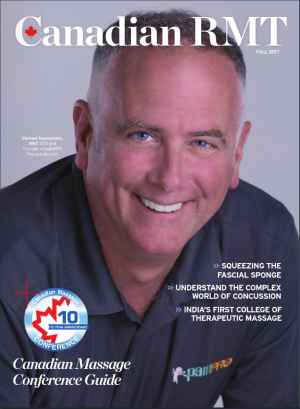Recently the regulator in Ontario conducted a survey to determine the perspective and application by RMTs to evidence-informed practice. The questions were comprehensive enough, but I suspect the survey will fail to deliver. It didn’t allow participants to address whether they value evidence-informed practice, and what are the barriers to doing so. So I wrote Bryn Sumpton, Manager, Research, College of Massage Therapists of Ontario (CMTO), with my perspective.
Research literacy and capacity were not part of my education 1989-1991. I value what research can provide the profession, so I since acquired M.B. Menard’s “Making Sense of Research” and Dryden/Moyer’s “Massage Therapy: Integrating Research into Practice”. I am a quarterly supporter of the Massage Research Fund in the USA https://massagetherapyfoundation.org/
I attended several of the IN-CAM conferences, and wrote of my attempts to understand how research could be better incorporated in my critical decision making https://www.massagetherapycanada.com/research-made-relevant-2137/
What’s more, I’ve made one of my STRiVE competencies to obtain a higher level of research literacy.
When the RMTAO offered access to research search engines a few years back, I spent time looking for studies that might inform my everyday practice.
I’m frustrated that the studies reported on conditions and populations I rarely see, for example paralysis, COPD. As for other studies, I don’t qualify to “massage the heart” in cardiac surgery.
I wonder when research design will better reflect the cases I see in everyday practice? Here are two examples:
1) A 65 year old woman, multiple medications for cardiac/circulatory conditions reports regular neck and back pain from her work in the lab at a local winery. She stands on mats over concrete floors, taxes her back and upper extremities with sophisticated lab procedures and has significant lordotic-kyphotic curvature in her spine, likely occupationally induced. She was looking forward to retirement this year but her husband died suddenly, apparently from medical error resulting in sepsis followed by death. She describes being “out of it” for several months and has returned to work in hopes of a sense of normalcy and purpose as she mourns the loss of her husband and the retirement plans they had.
2) A 64 year old woman, HR professional has experienced progressive hip and lower back pain. The severity of the pain required her to turn over and back out of her bed in the mornings, reduce her walks and eliminate bicycle rides. She relied on sleeping pills for years to help her sleep. The apparent origin of the pain: 20 years ago she fell out of a tree onto a mature, exposed tree root, while 8 years ago she slipped in the tub and impacted her rib cage and flank. She admits the progressive pain and immobility has affected her sleep, mobility and quality of life for several years. She has tried a number of practitioners and methods with minimal improvement to her function.
Why aren’t more research studies designed to inform practitioners how to address the physical-psychological-social complexity of cases like these?
I believe some of the barriers to RMTs embracing evidence-informed practice are 1) RMTs can’t find studies with outcomes relevant to their specific practice 2) Are research illiterate/not trained in methodology 3) Resources spent for reviewing research or writing case studies are not incentivized properly and 4) higher educated, research literate RMTs are regularly forced to look outside the profession for positions commensurate with their knowledge and experience https://www.massagetherapycanada.com/preventing-brain-drain-4009/
So, I think the survey design would illicit more useful information if it was anteceded by open-ended, qualitative questions like “What does evidence-informed practice mean to you? What barriers do you have incorporating evidence into your practice? What research questions do you want to see answered? If not interested in informing your practice with evidence, why not?”
I think the answers to these questions would be robust and insightful in advancing the CMTO’s stated objective of increasing research literacy in the MT profession.
The CMTO has been a generous contributor to the Massage Therapy Research Fund http://www.cmto.com/about-mtrf/. I wonder if the CMTO would also consider hosting a round-table (virtual broadcast) jointly with the RMTAO of thought leaders from the profession to address the consistent roadblocks WRT research literacy, capacity and building infrastructure to support research.
As an aside, you might find this article by Sasha Chaitow “Science, Pseudoscience and the Communication Battle” in Massage & Bodywork, July/August 2020 clearly nails the urgency of advancing research in our field, and points to some solutions in addressing the problems we are facing. http://www.massageandbodyworkdigital.com/i/1256819-july-august-2020
Thank you for your most considerate attention to my concerns, and I wish you all the best in your position with the CMTO.
Don Dillon

